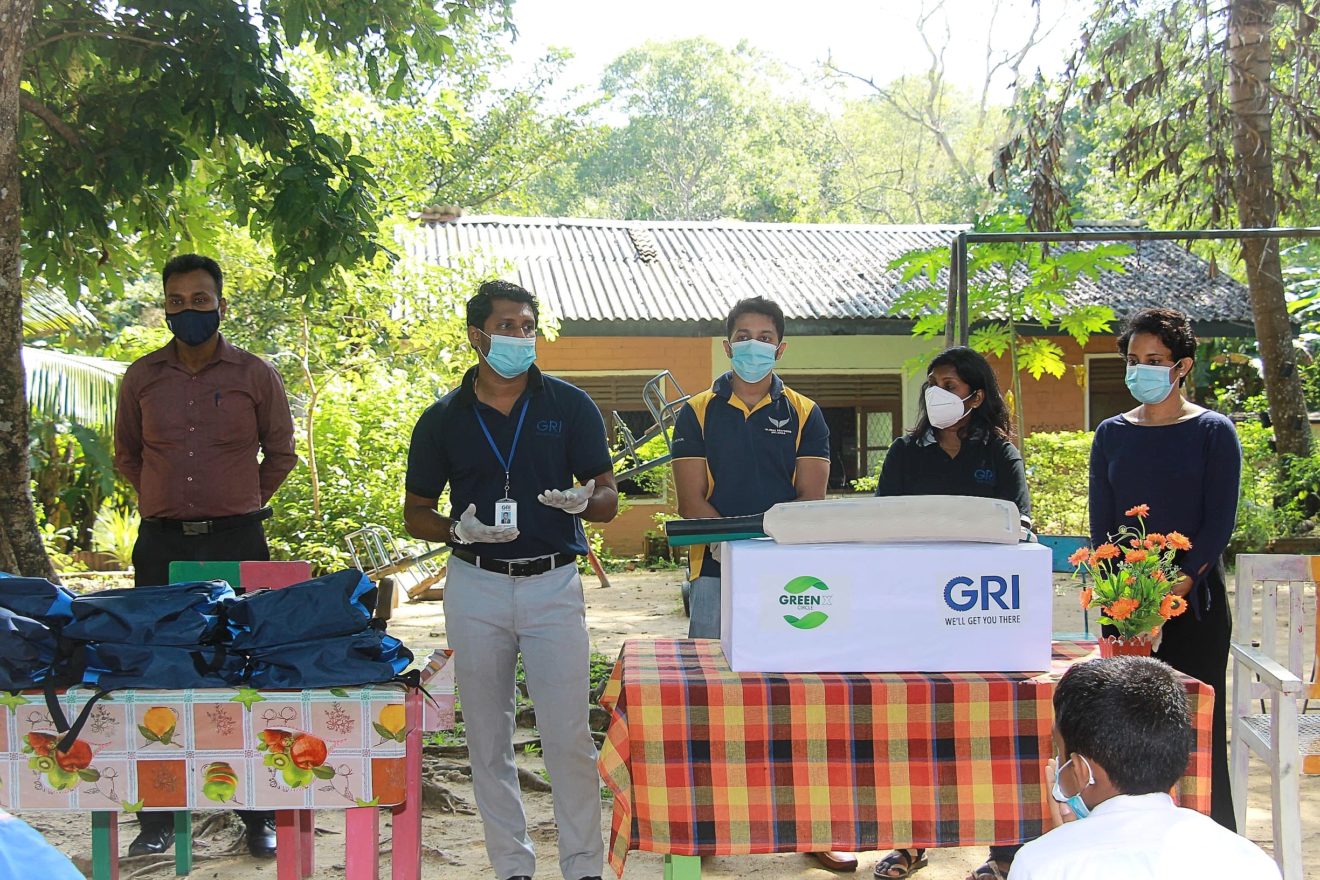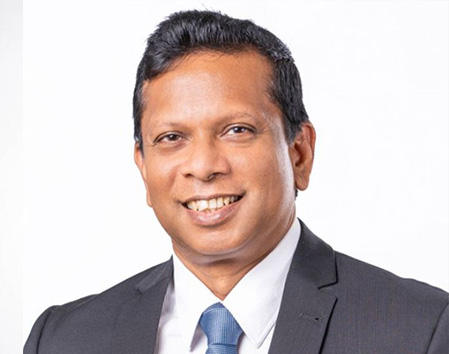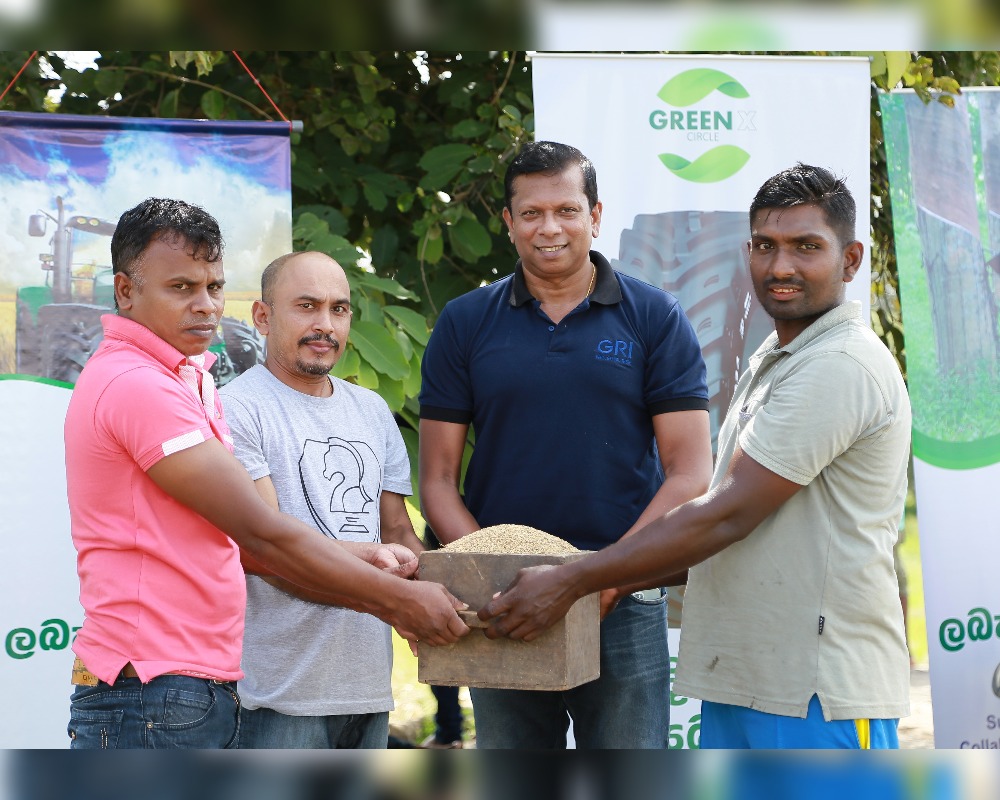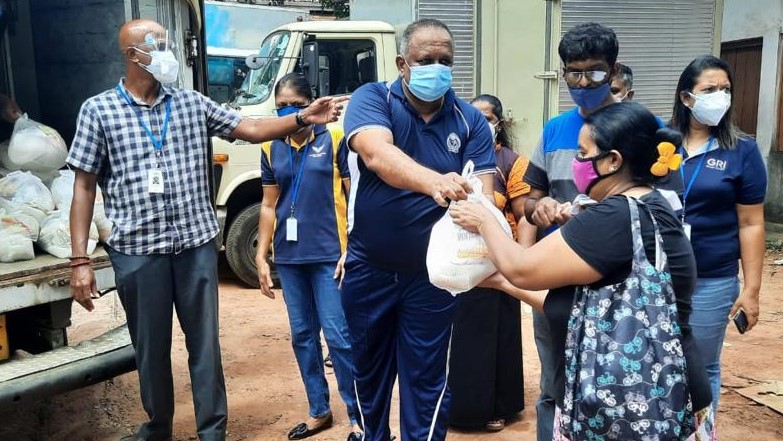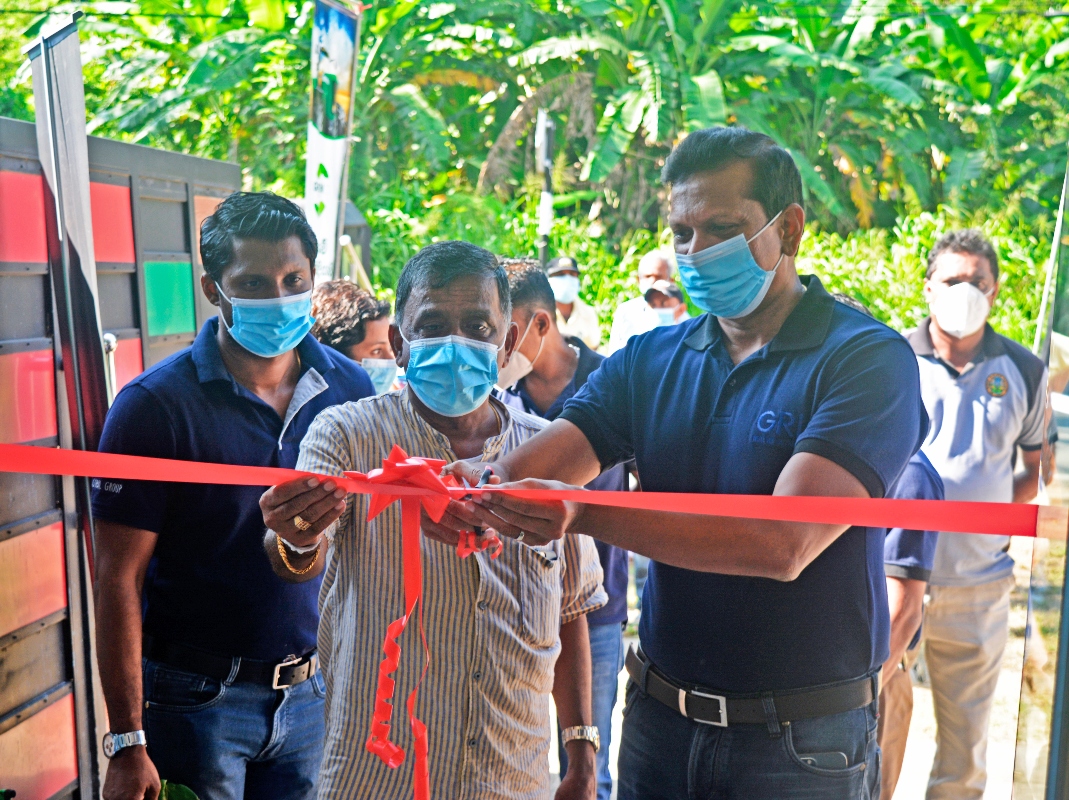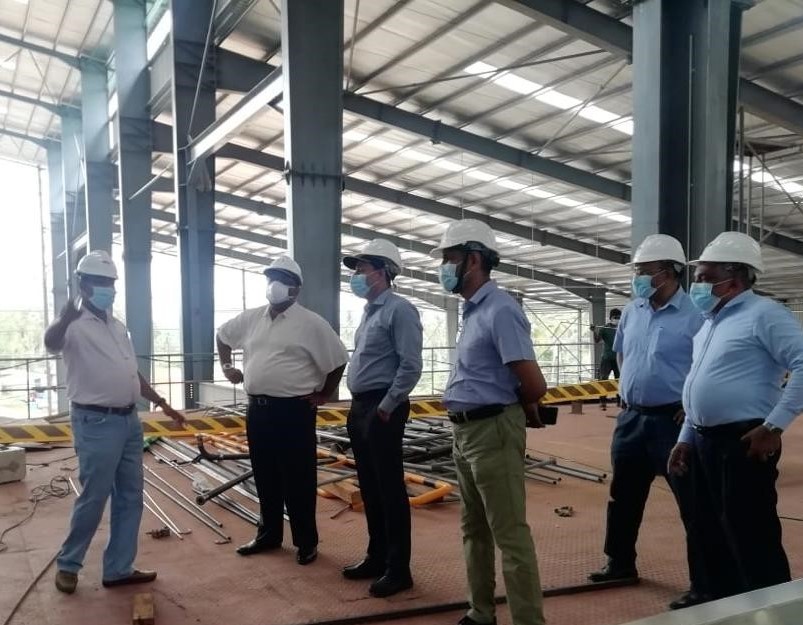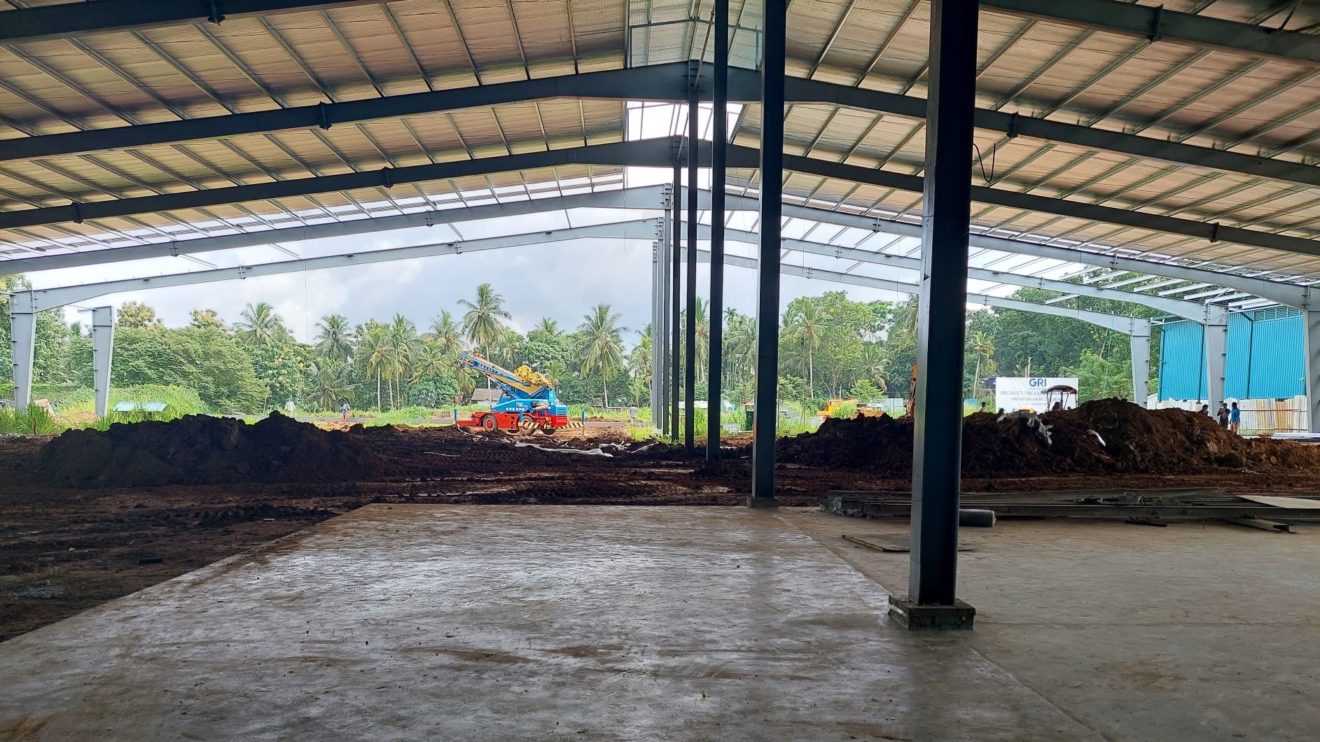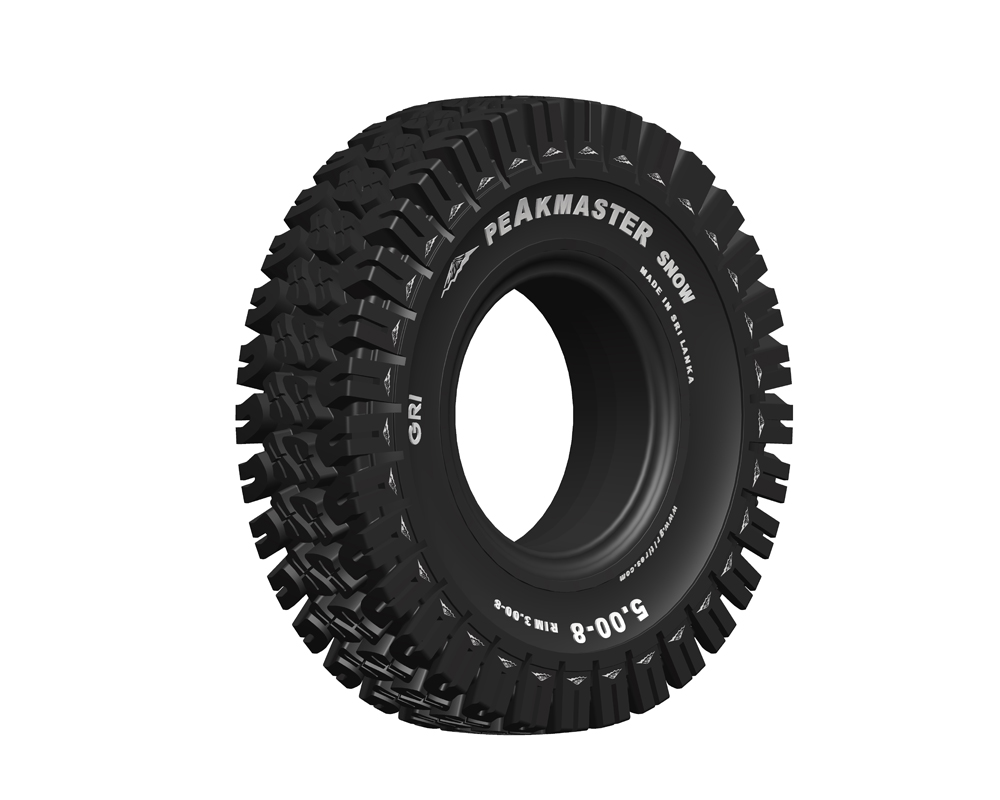GRI’s GREEN X Circle Uplifts Schoolchildren in Rubber Farming Communities
GRI, recently held two outreach events with natural rubber farming communities it works with. The events were held under GRI’s GREEN X Circle initiative which supports Sri Lanka’s farming communities and the country’s vibrant agricultural industry.
GRI’s close links with the communities over the years has resulted in robust partnerships and grassroots support. Identifying a need for extra-curricular sporting activities and equipment for school children in the area, the company distributed cricket equipment, volleyball equipment and badminton kits to selected schools in Monaragala, Sri Lanka.
“I convey our heartfelt gratitude to GRI in helping us develop the sporting skills of students at our school. We hope GRI will continue to support these children in the future and wish the management success in all their future endeavours,” said Mr. D. M. Senevirathna, Principal of the Monaragala school.

“As a specialty tire manufacturer for agriculture equipment, GRI recognizes the importance of smallholder farmers in Sri Lanka and the unique challenges their communities face. Our GREEN XCircle initiative helps improve the socio-economic status of Sri Lankan rubber farmers by ensuring fair compensation for their products and giving them the foundation to expand and innovate in rubber cultivation. GRI works with the community to provide solutions for their challenges as the GREEN X Circle is focused on sustainability and taking on a holistic, long-term approach,” stated Dr Mahesha Ranasoma, CEO of GRI.
The recent CSR project was carried out because of close interactions with the farming communities and understanding aspirations for their children. To help children in these farming communities start the New Year on a positive note and achieve success in their education, GRIalso distributed school bags and stationery kits to farmers’ school children inMonaragala in lieu of the new school year.
Mr.H. M. Ranjith, a rubber farmer from Nakkala, Monaragala noted that a unique aspect of their relationship with GRI were these close-knit connections. “We have been supplying rubber sheets to GRI ever since they opened the Nakkala GRI Rubber Purchasing Centre. The main reason for this is the great service by GRI rendered to us and the recognition they have for the work we do. The schoolbags and stationary gifted to these children will go a long way and we will continue to further develop our relationship with GRI in the future,” said farmer Ranjith.
“The GREEN X Circle is a strategic initiative of GRI, connecting the natural rubber farmer community in Sri Lanka and farmer communities worldwide, who are beneficiaries of the agriculture tires produced by GRI. These tires are manufactured using the natural rubber supplied from our loyal farmer base. As we keep building the foundation of the GREEN X Circle in Sri Lanka, it is a privilege to be able to support the farmer community by assisting schools and students. These are small beginnings of a long journey to show our gratitude to the hardworking farmers who are the heart of our nation,” noted Mr Prabhash Subasinghe, MD of GRI.
GRI is a leading manufacturer of Specialty Tires in Sri Lanka with offices in nine countries and a presence in over fifty countries. GRI produces high-performance AgricultureTires, Construction Tires and Material Handling Tires. Its advanced new factory is the largest in Sri Lanka to produce specialty tires and the first to produce radial agriculture tires in the country.
- Published in Press
Innovation as a Holistic Process: The GRI Story
What does it mean for a specialist tire manufacturer to innovate? How can a company embed innovation into its DNA? This week’s GRI Connect provides a snapshot of GRI’s approach to innovation beyond the boundaries of a product.
“The future outlook for the specialty tire market is a robust one. New technologies, business agility and innovations can yield vast opportunities for growth for players in the industry. While technology and innovation go hand in hand, it is important to remember that this is only one driver of innovation. Innovation is a holistic process that encompasses all parts of a business’ operations,” notes Dr Mahesha Ranasoma, Chief Executive Officer – GRI.
| For GRI, innovation began at the outset of its journey setting a sturdy foundation to build on. Its vision was to produce tires that would challenge the best tire producers in the world. The company began by installing cutting-edge technology and equipment that was best in class. Some equipment was the first of its kind in Sri Lanka. Research and development is a key component in innovation – GRI expanded their R&D capabilities in both its factories, employing skilled personnel who were the best at what they do. These initial steps to incorporate innovation in its production and development have yielded results. |
| GRI has focused innovation in designs and compounds, developing new tread designs and advanced compounds that give a higher performance at the same costs. This has enabled GRI to serve customers better, creating demand for its products in both solid and pneumatic specialty tires and resulting in the expansion of both its factories. Agility in innovation can be seen in GRI’s ability to persistently add value to its customers. A recent development in its solid tires was the development of a slightly wider tire as per requests from customers in different parts of the world – the result was a special tire with a wider footprint but the same weight and structure. GRI also worked collaboratively with its Japanese customer to produce a winter tire with a special compound and tread that functions in sub-zero temperatures.  GRI also innovates through its processes and systems. Employees are encouraged to think out of the box and develop new ways of working to increase efficiency, find new ways of servicing their diverse clientele and always adding value at every stage. Innovation in sustainability is another driver at GRI. Sustainable business is at the heart of its operations. GRI is a global stakeholder actively adapting and aligning its practices and policies in accordance the UN’s Sustainability Development Goals and incorporating eco-friendly innovations across the board. Environmental sustainability and innovations in this regard are key thrusts throughout GRI organization. When GRI initiates a development, it looks at whether it would reduce its carbon footprint and if it leads to a reduction in wastage and better recyclability. The company focuses on ensuring that there is a reduction in the customer’s carbon footprint as well – energy consumption also decreases thanks to the use of GRI Tires. Even within GRI’s own manufacturing systems, it looks at energy efficiency. GRI’s innovation has a firm sustainability foundation.The use of biomass boilers instead of traditional furnace oil boilers ensures there is no hazardous environment around its manufacturing plants. An environmentally friendly ‘dry’ production process ensures low material wastage and no emission of gases or liquid disposal. Green policies on water management have resulted in innovative ways to harvest rainwater and an efficient wastewater management system. While natural rubber is a renewable commodity, in an industry where demand is disproportionately large, sustainability in sourcing is of foremost importance. GRI sources pure natural rubber from Sri Lankan farmers and plantations around the island nation. This natural rubber, which is sourced from smallholder rubber farmers in Sri Lanka to build GRI’s high-grade Agriculture Tires that are eventually fitted on the machinery of farmers across the world, creates a unique value chain which begins and ends from one farmer to another. GRI’s GREEN X circle highlights this unique linkage creating an end-to-end farmer eco-system between Sri Lankan rubber farmers who harvest natural rubber and the agricultural farmers worldwide who use tires made from this natural rubber. This is an example where GRI use’s creative thinking innovation, and sustainability in an end-to-end manner. GRI uses innovation to push different boundaries beyond the product. “Our focus is to develop products that function above anticipated performance and are always made at the upper limits of performance and quality tolerance. This guarantees the utility value to the end-user beyond what they expect. It leads to our virtuous cycle of continuously increasing the customer’s value creation boundaries,” says Dr Mahesha Ranasoma. “The volatility the world faced last year was a pressure test for many companies, putting their innovation strategies and lessons to test. Innovation is dynamic and reflexive, adapting to the market, customer and changing conditions. We saw this especially last year due to disruptions because of the coronavirus. Innovation is an everyday process of continuous improvement. We at GRI are proud to say that innovation is truly in our DNA,” he noted. |
- Published in Press
GRI’s GREEN X Circle connects Rubber and Crop Farmers in Sri Lanka

On Friday 26th March 2021 GRI brought together natural rubber farmers and crop (rice) farmers to show their connectivity through its GREEN X Circle initiative, at an event held in Monaragala, Sri Lanka recently. These two farming communities are key stakeholders in the GRI value chain. The event signified the continuation of the series of events organized through GRI’s GREEN X Circle initiative where the concept was introduced to the crop farmers for the first time.
The GREEN X Circle connects the natural rubber farmer who provides the raw material for the production of specialty tires, and the crop farmer, who is the end-user of the agricultural tires produced by GRI. Through this initiative connectivity and collaboration are fostered between the two farming ecosystems while placing emphasis on sustainability principles. GRI’s GREEN X Circle is a global endeavor, in which GRI has now begun to introduce this concept to the Sri Lankan agricultural community, where at an event held in 2020 the concept of the GREEN X Circle was first introduced to the rubber farmers. GRI was able to demonstrate the similarities and connections between the two communities by bringing the key stakeholders of GRI’s GREEN X Circle together on one platform. Furthermore, GRI was able to show the company’s contribution to strengthening and supporting rubber and crop (rice) farmers through this initiative.
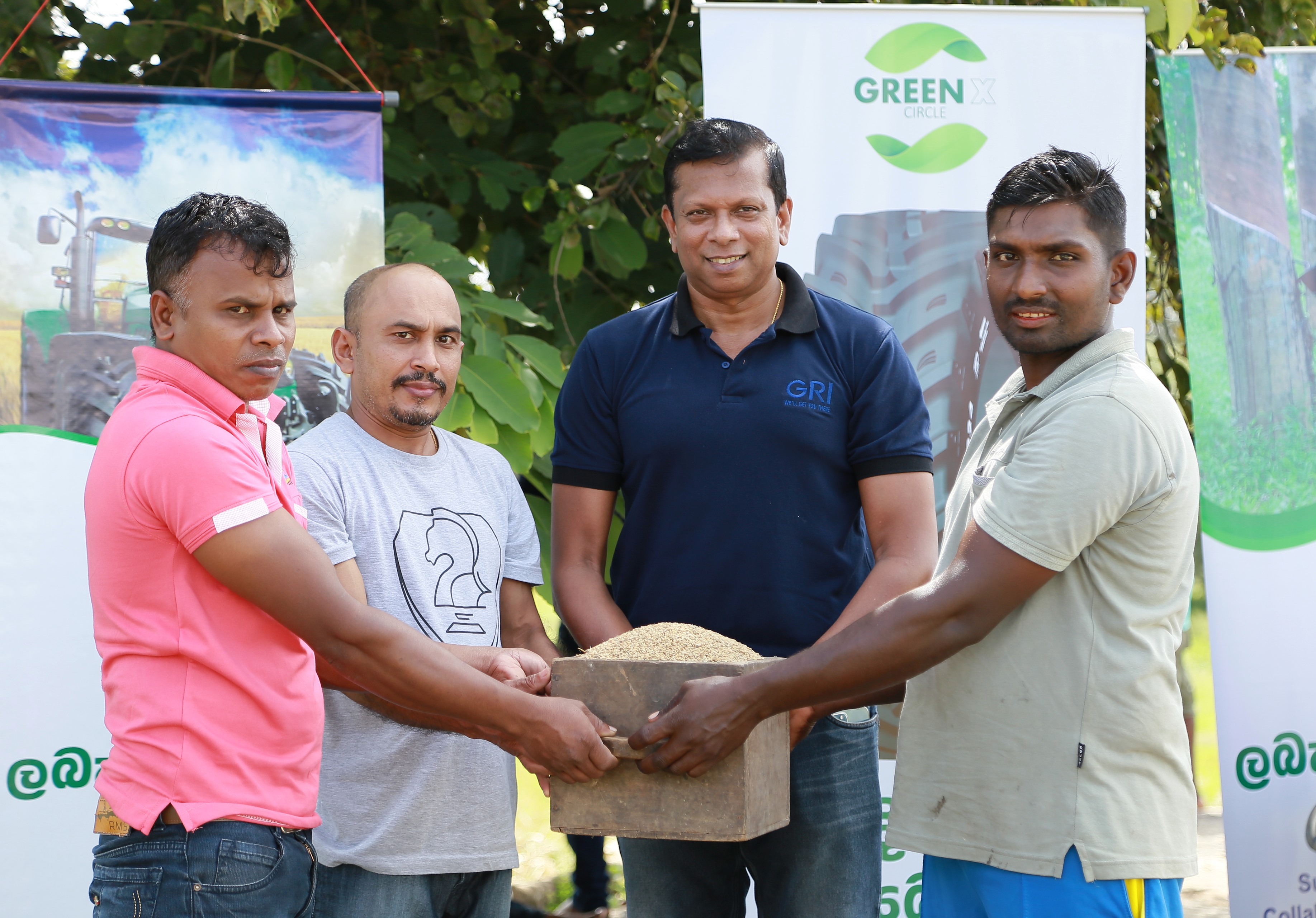
| GRI explained the superior quality and features of the tires, which in turn increases the productivity and efficiency of the agricultural machinery of the crop farmers. “We can support and strengthen the rubber farmers by purchasing the rubber that they produce and manufacture a tire that is of international standards. When the productivity of the machines used by crop farmers increases, it benefits Sri Lanka and rubber farmers. Through the GREEN X Circle program, collaboration and a mutually beneficial relationship are fostered”, explained Dr. Mahesh Ranasoma, CEO of GRI. |
| Signifying the agricultural focus of the connectivity between the two farming communities the event was held at the traditional paddy threshing grounds of a paddy field. The special occasion marked the connection of GRI’s GREEN X Circle. The rice farmers presented the rubber farmers with their harvest of rice, which showed their appreciation to the rubber farmers for producing good quality rubber that was sourced to produce the GRI agricultural tires, which are used in their machinery. |
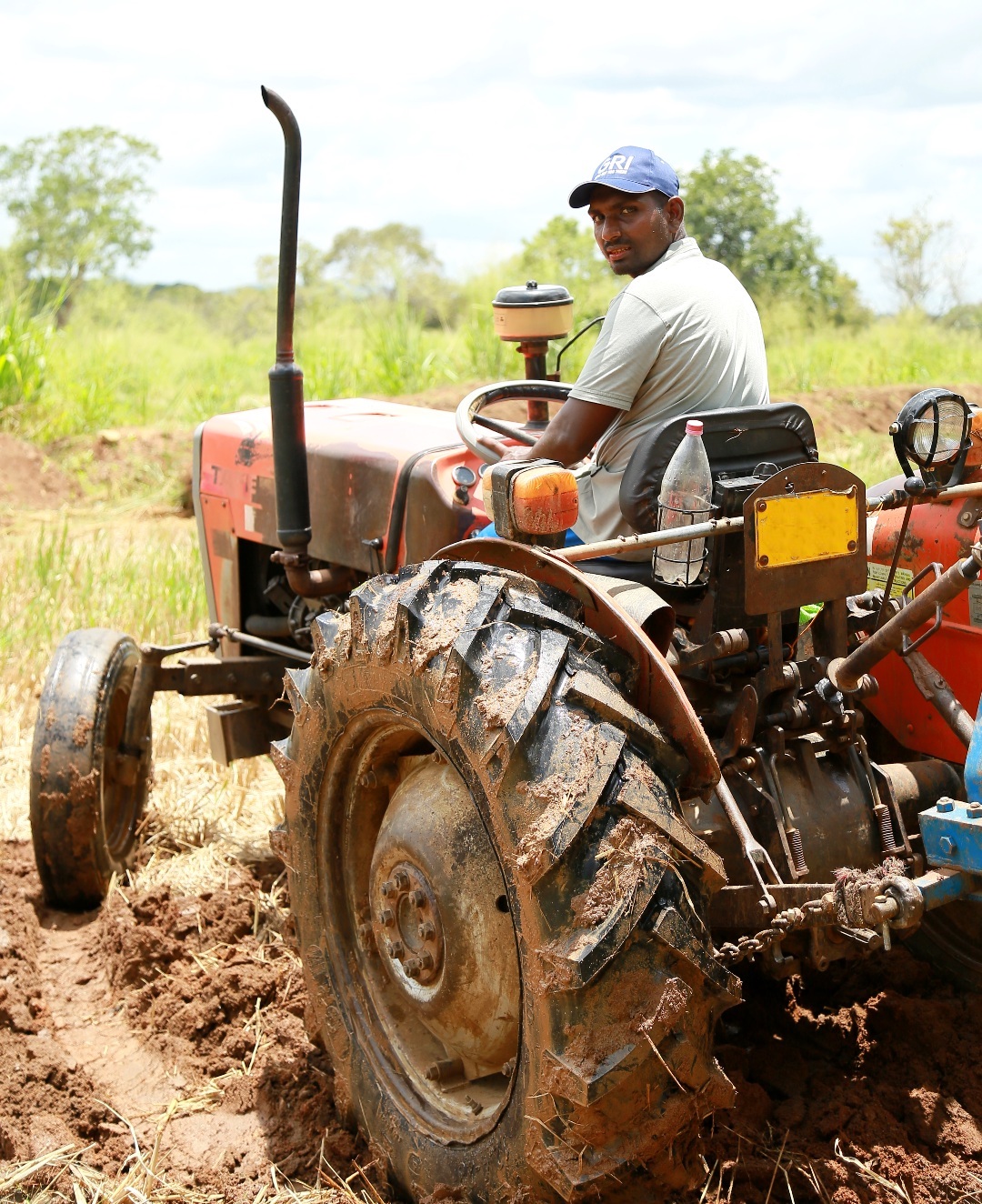
“We started supplying GRI with rubber about a year ago and they were the first company to provide us with a stable and fair price. We attended the training programs and workshops organized by GRI, and we were able to gain much knowledge on sustainable practices. With GRI’s support we have received a new lease of life to continue with rubber farming,” said P. Dayarathna, a rubber farmer.
As GRI has inculcated sustainable practices in the growing, tapping, and processing of the natural raw material, rubber, the tires produced are of the highest quality, which in turn enables the crop farmer to increase their yield through the usage of GRI tires.
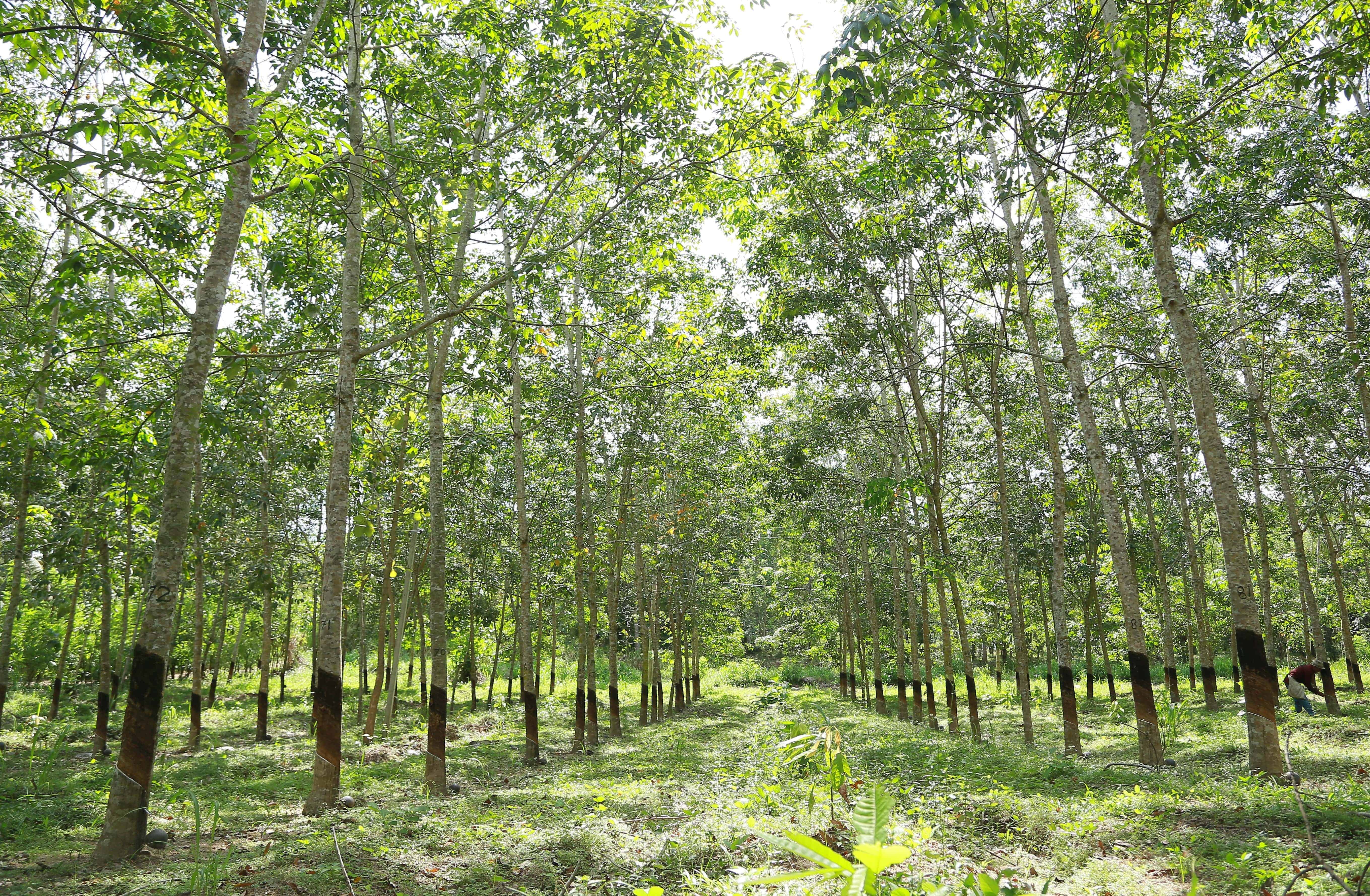
Susantha Siriwardena, a rice farmer explained, “I am using GRI tires in my tractors, and we have been able to work with greater efficiency enabling higher productivity. I am extremely happy to know that the tires we use are manufactured with the rubber supplied by the rubber farmers of Monaragala.”
“There are three parties required to take the GREEN X Circle program forward; that is the rubber farmer, crop farmer, and GRI”, said Dr. Mahesha Ranasoma. “GRI supplies Sri Lankan-made tiresusing Sri Lankan rubber to the international market. Thus, the rubber farmers in Sri Lanka, the crop farmers here and abroad are connected through the products that we manufacture. We can take this forward as the only initiative of this nature in the world, which will bring great pride to the country. GRI’s GREEN X Circle program will benefit future generations to come”, he further added.
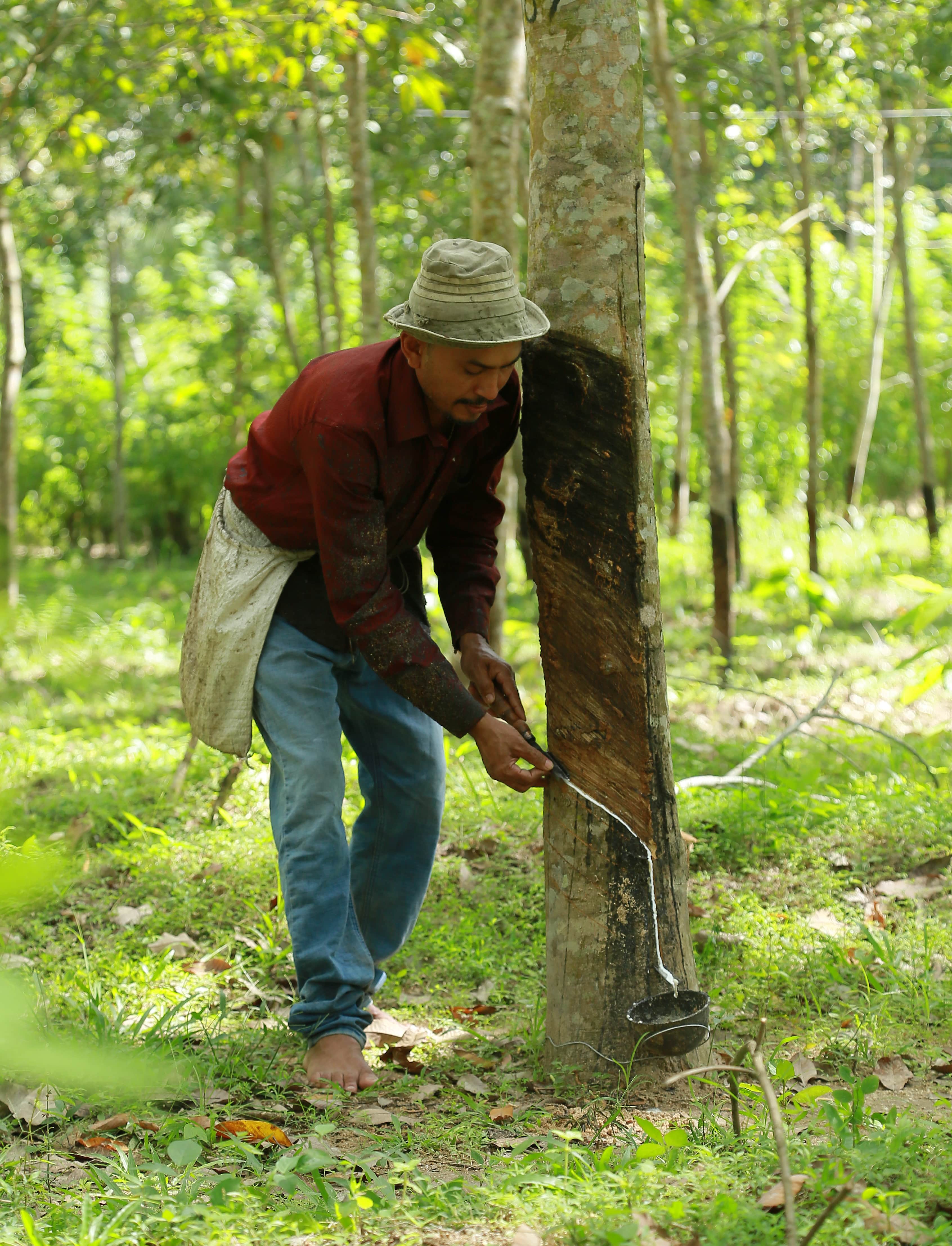
- Published in Press
GRI Care: Giving Back to Society

As a responsible company, GRI has always recognized the importance of giving back to the country and its people. Historically GRI has focused on the ecosystem that it works within. However, when the nation requires assistance, the company does not hesitate to extend its support. As Mr. Prabhash Subasinghe, Managing Director, GRI says “It is ingrained in our DNA as an organization to give back to society”.
| GRI has always taken its social responsibility seriously and throughout the years the company has been very active in supporting the communities that are within its ecosystem. Yet, during times of natural disasters or more recently in the case of the prevailing COVID-19 pandemic, GRI has taken steps to provide its support to areas that require the most urgent assistance even outside its ecosystem. “While building the business it is important for any corporate to inculcate a culture within the organization around supporting people”, explained Mr. Subasinghe. “We are also giving back to the country by building the tire industry, which is predominately engaged in exports. Thus bringing in the much-needed foreign currency to the country.” |
| With the advent of the COVID-19 pandemic in 2020, GRI stepped up its CSR initiatives through the GRI Care program where it supported communities within and outside its ecosystem. Similarly, with the surge of the third wave of the pandemic this year, GRI understood that the entire medical system was stressed and that Government hospitals required support. As soon as the requirements of the hospitals were released Mr. Prabhash Subasinghe took the initiative to inquire on the most urgent needs, and within a short period, two high-function ICU beds were donated to the Gampaha and Kosgama Hospitals upon the request of the Ministry of Health. Though they were prominent hospitals in the country, they had not received such medical equipment previously. 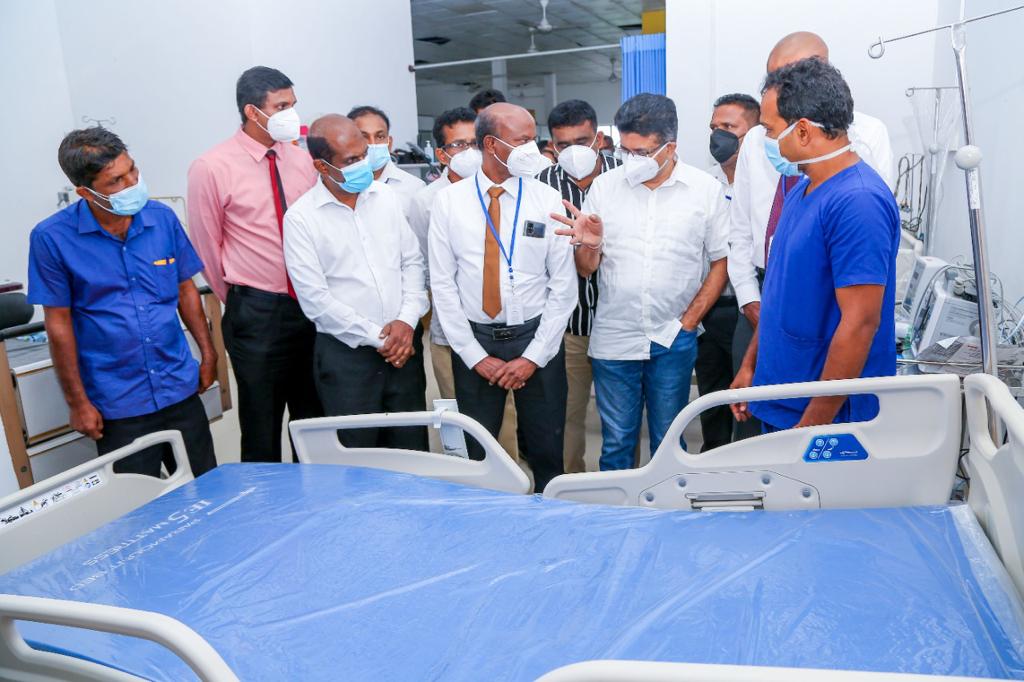 Donation of multifunctional ICU bed “Each person contributes in the way they can, the numbers are always relative. We find many individuals assisting as well. But responsible corporates need to step up and give back to the country. That is also a reason we do business, to give back to society,” explained Mr. Subasinghe. Recognizing that it is the daily wage earners and their families who are severely affected by the current lockdown, GRI distributed food rations to over 350 families on two separate occasions in Colombo. GRI sources natural rubber from Sri Lankan farmers. During this period where the farmers are unable to travel to the rubber collection centers in Monaragala, GRI took the initiative to go directly to the farmer to collect rubber. Thereby ensuring that the rubber farmers’ livelihoods continue. GRI will continue supporting the rubber farming community during challenging times. 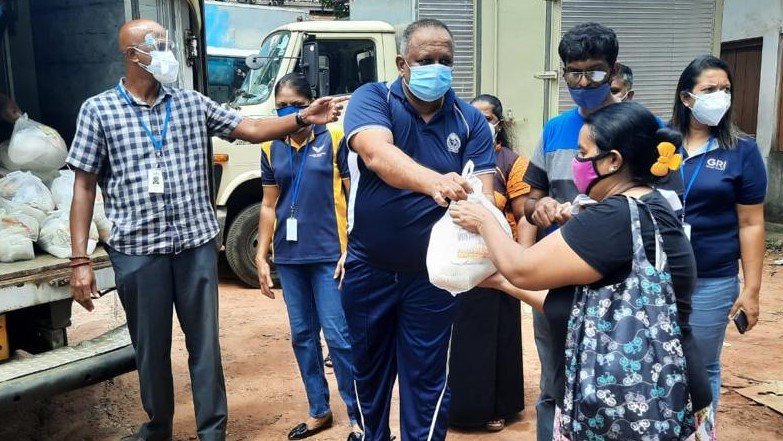 Distribution of essential goods to the most needy ‘Caring’ is one of the core values of GRI, the company has continuously engaged in programs to support the community within its ecosystem. It has always been part of the organizational culture that it is a primary duty as people to assist the country during times of need where GRI goes beyond their immediate community and supports the greater society. With GRI Care being formalized the company will continue to engage in various projects to assist the people of Sri Lanka. “It is important not only for me as an individual but to all our employees to be a part of an organizational culture where caring is a part of our DNA. You need to do the right thing at the right time. For GRI, it is not only about business, we look at humanity first,” explained Mr. Subasinghe. |
- Published in Press
GRI unveils latest rubber collection center in Sri Lanka
GRI is on a continuous journey to strengthen its natural rubber farmer base as well as support the growth of farmer communities through its GREEN X Circle initiative. Monaragala District in Sri Lanka is one of the prime rubber-producing areas in the country. Thus, to enhance collaboration and connection while focusing on sustainability principles, GRI opened its latest rubber collection centre in Buttala in the Monaragala District on April 23, 2021.
The establishment of GRI rubber collection centers provides noteworthy benefits to the rubber farmer community, where GRI focuses on forming a close relationship with the farmers, ensuring a fair price for natural rubber as well as providing capacity-building programs to enhance the yield and sustainability of the rubber produced. Dr. Mahesha Ranasoma, CEO of GRI, explained at the opening, “We are not only purchasing rubber, but we are also fostering a greater aim, which is the GREEN X Circle. Through this initiative, we connect the rubber farmer to the crop farmer, who is the end-user of the GRI Agricultural tires both in Sri Lanka and globally. We manufacture the tires using the rubber produced by the rubber farmer, and the crop farmer uses the tires to produce his harvest, which in turn is consumed by us as food. The GREEN X Circle is a sustainable ecosystem that brings all stakeholders together.”
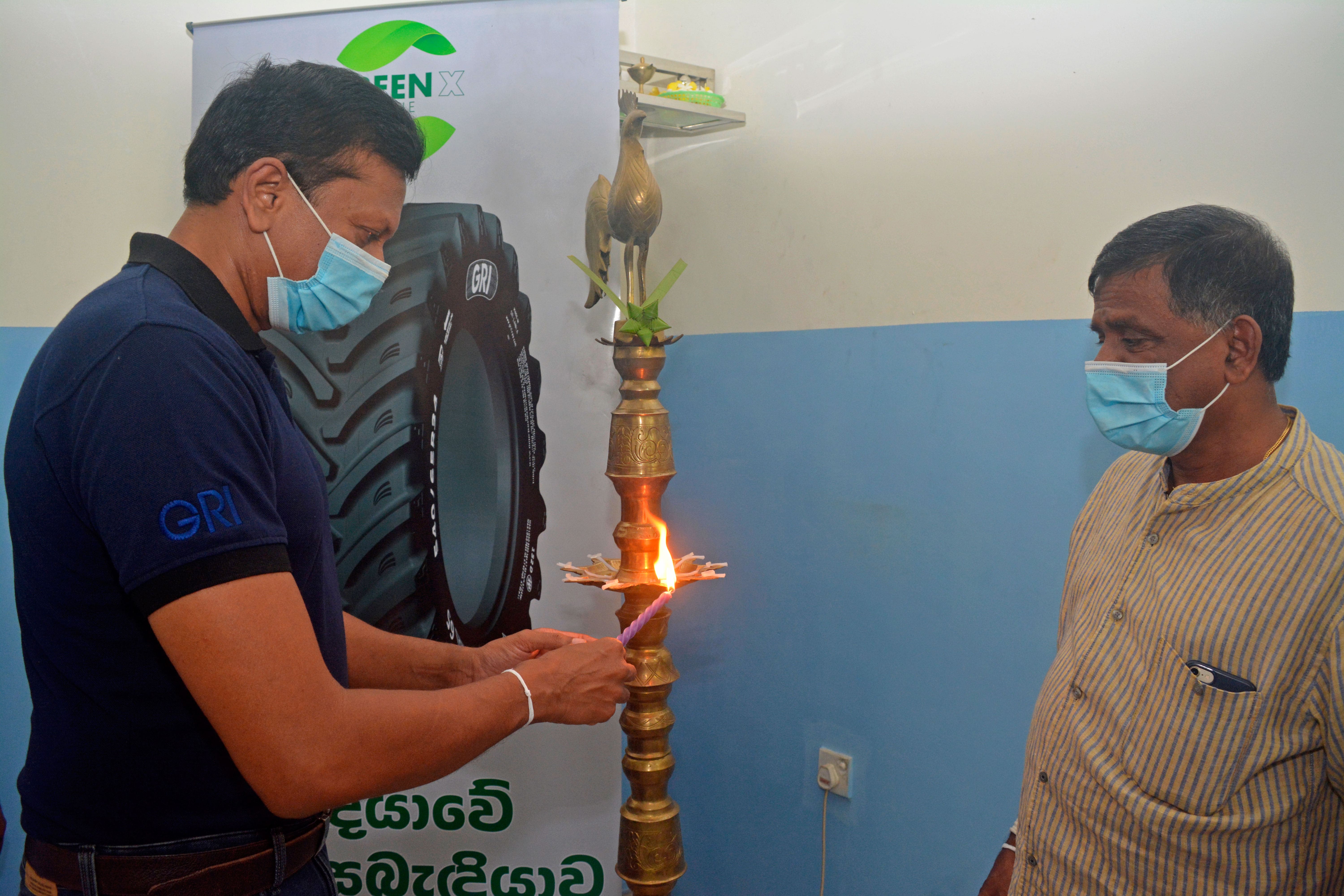
GRI CEO lighting the traditional oil lamp
The GREEN Circle initiative includes GRI, rubber and crop farmers as well as tire dealers, who are the intermediaries. In this manner, the GREEN X Circle ecosystem supports multiple communities, where the relationships formed are mutually beneficial.
GRI works together with the Rubber Research Institute of Sri Lanka (RRI) to provide training programs and build the capacity of natural rubber farmers. Programs include the teaching of sustainable practices, efficient rubber tapping techniques as well as the correct farming methods to ensure that the natural rubber farmers have increased yields of high quality.
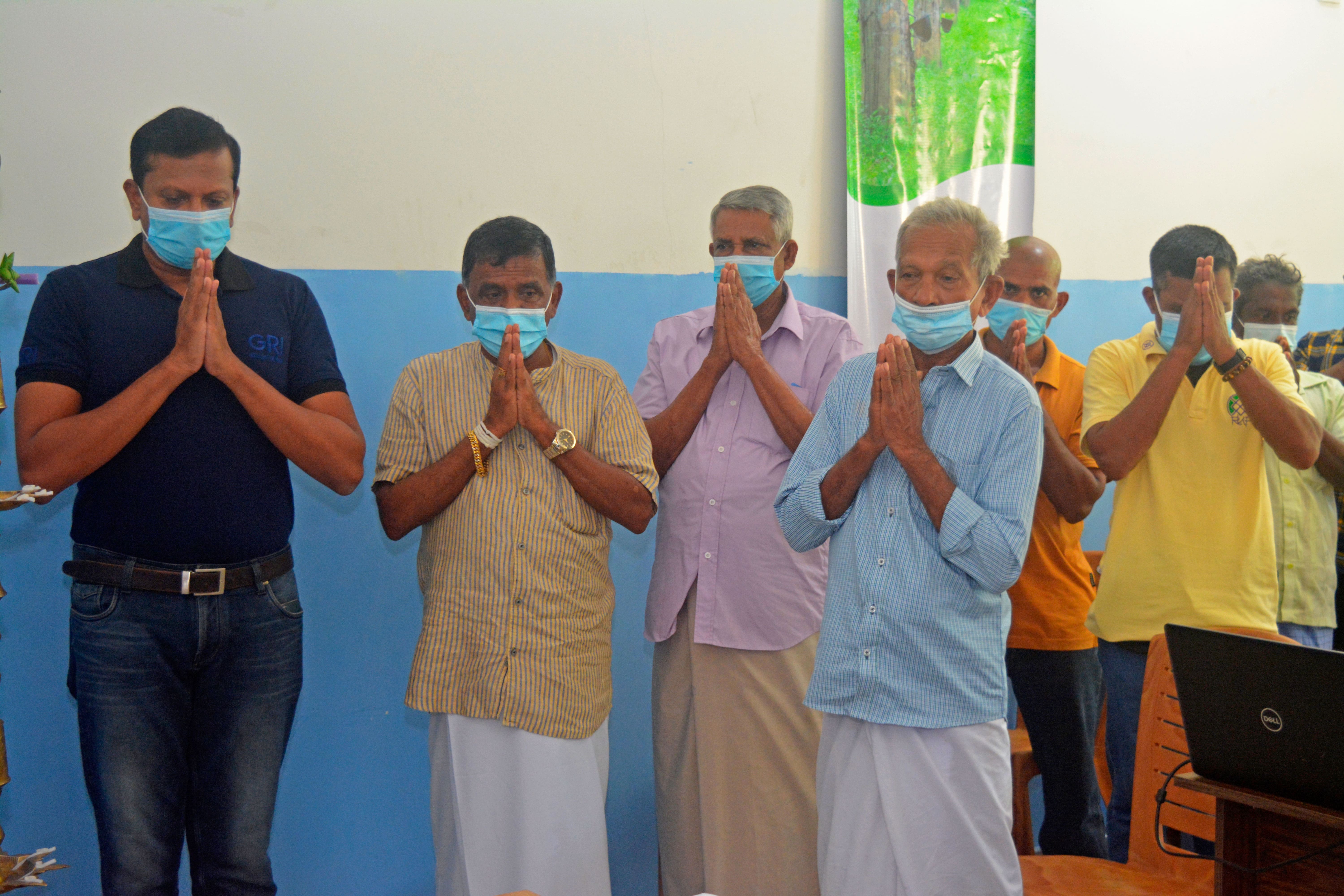
Opening ceremony blessings for the new collection centre
The rubber farmers were taken on a live virtual tour of the GRI manufacturing facilities, where it was similar to them walking through the factory. GRI showed and explained the different processes of how the rubber supplied by the farmer eventually becomes an internationally renowned high-quality tire. This enabled the rubber farmers to understand and appreciate the process in which they too are stakeholders.
A highlight of the event was the launch of the natural rubber procurement App (first phase) by GRI. The App will analyze supplier trends and also see GRI moving away from a paper-based manual data collection process to a paper-less environmentally friendly digital process.
- Published in Press
GRI’s New Mixing Plant On Track
In September 2020, GRI announced its new mixing facility in the Mirigama Export Processing Zone (MEPZ) in Sri Lanka to meet the global demand for its tires. The new mixing plant is poised to quadruple GRIs current capacity of 50 – 60 metric tonnes per day to 200 tonnes per day.“We are pleased to announce that GRI is on track with progress for the new mixing facility,” announced Mr. Ananda Caldera, Executive Director of GRI. “The installation of the high-tension switchgear is complete and we have received electricity supply and powered up the plant. We are on schedule and have completed the installation of one mixing line.” he stated.
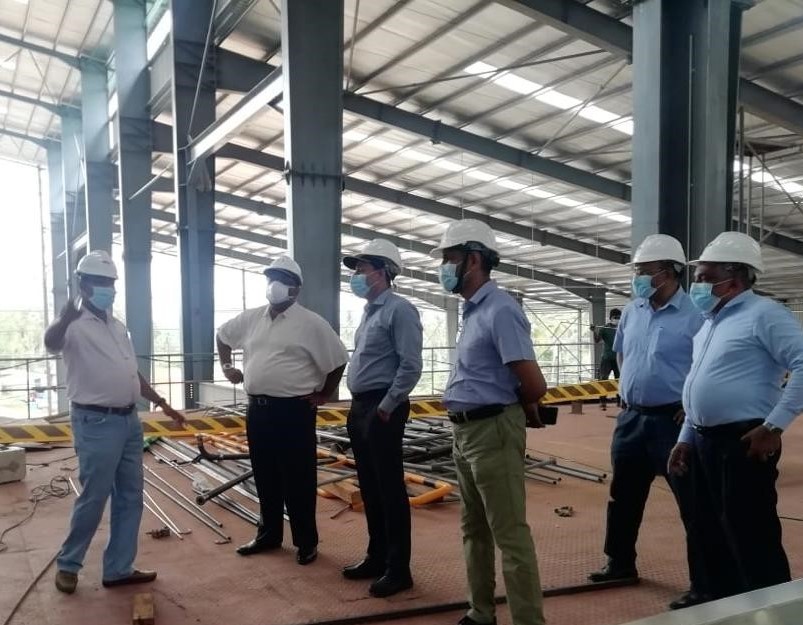
GRI’s new mixing facility is the size of two and a half football fields, which is around 3 acres, and is constructed by RN Construction, a C1 contractor and leading industrial developer in Sri Lanka. An uncommon and advanced mixing facility, the plant requires an amalgamation of complex fabrication and cutting-edge industrial design to be fitted with equipment and machinery to facilitate and ramp up GRI’s manufacturing capabilities.
An auto-feeding system of fillers maintains zero dust generation by carbon black. Its silo systems and dust collection mechanisms at every stage ensure that there is no wastage or by-product, underscoring GRI’s mandate on safe and sustainable manufacturing.
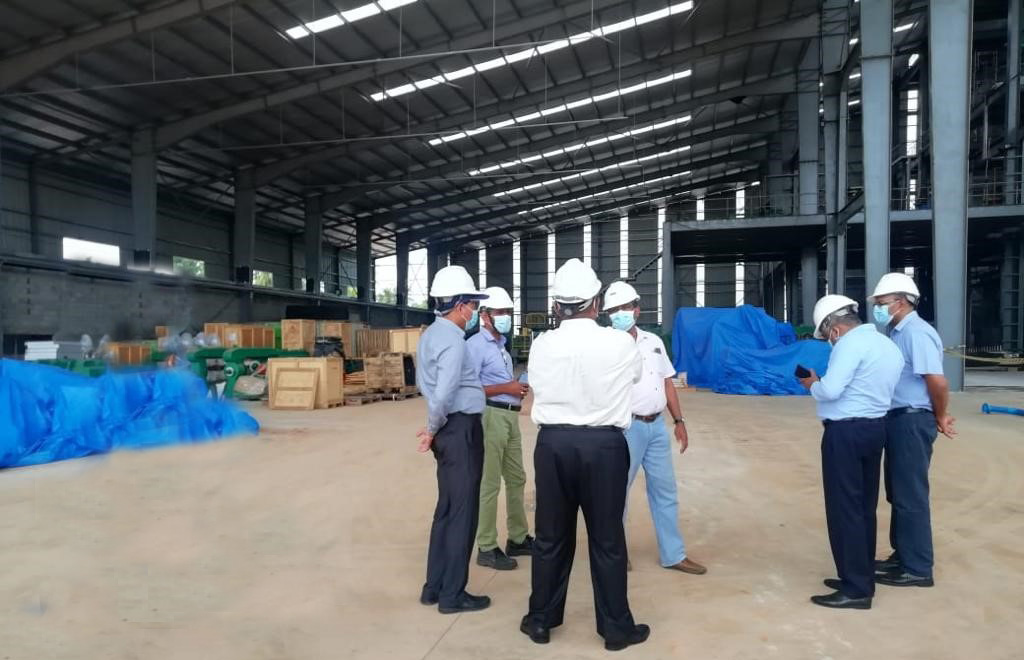
The mixing facility will consist of the latest industry equipment to ensure sustainable and high-quality manufacturing of its specialty tires. State-of-the-art automatic weighing equipment ensures accuracy and quality in accordance to the unique chemical compounds required for GRI’s high-grade specialty tires.
The plant is expected to put Sri Lankan specialty tires firmly on the global map. A second mixing line in the new facility is poised for completion by the end of May 2021.
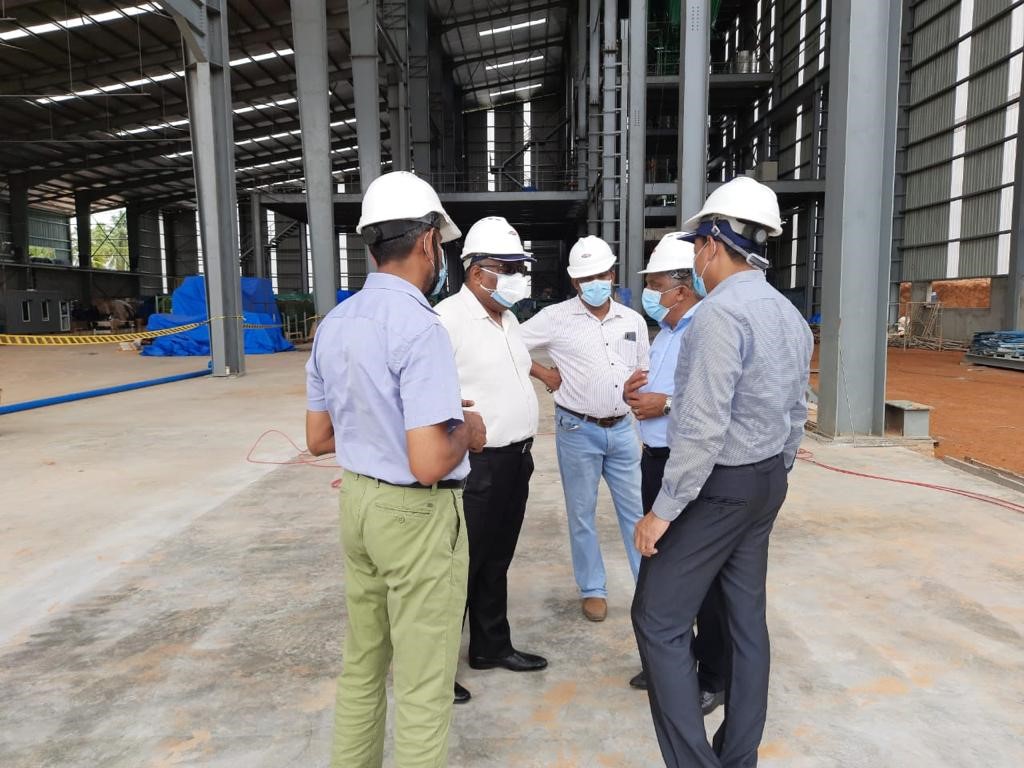
- Published in Press
GRI Production Plant Expansion Progressing Well Despite Lockdown
June 21, 2021. Colombo, Sri Lanka: The second phase expansion of GRI’s production facility which began in January 2021is progressing well despite the challenges posed by the current lockdown in Sri Lanka. The new and advanced specialty tire manufacturing plant is being built next to GRI’s current facility with a total investment of USD 100 million.
The aim is to enhance GRI’scurrent production capacity to 750,000 tires per year with a total capacity of 100 tons per day. With the ongoing expansion, the installed machine capacity has increased from 25 tons of tires per day in January to 35 tons per day presently. The plan is to reach a production capacity of 1,000 tons of tires per month by July. All the required machinery for this phase of plant expansion has been commissioned methodically.
“The building expansion work is ongoing for the entire land. We will be doubling the extent of the production facility. The total area will be 220,000 sq. ft. which is the size of over four football fields. We hope to complete construction by October this year and by December we will have an installed capacity of 50 tons per day. GRI will further install capacity to reach 100 tons per day in 2022,” explained Mr.Ananda Caldera, Executive Director of GRI.
Protecting the environment is always at the forefront for GRI, and the company focuses on reducing its carbon footprint as well as its impact on the environment. Thus, the new facility will expand GRI’s solar panel initiative and generate 2.5 MegaWatts of solar power. “We will focus on optimizing energy efficiency, water conservation, and waste management. The building is designed in a way that during the day the facility will be illuminated by natural light. Greening of the production facility will be done by planting over 75 trees on the premises,” explained Dr.Mahesha Ranasoma, CEO of GRI.
Despite the travel restrictions imposed with the advent of the third wave of the COVID-19 pandemic in Sri Lanka, construction work continues on the schedule of the production facility, and progress has been satisfactory.
GRI produces high-grade specialty tires that are built sustainably using pure natural rubber in Sri Lanka. Founded in 2002, the company produces material handling solid tires, radial agriculture tires, and construction tires. GRI has operations in 9 countries, and a business presence in more than 50 countries. In 2018, GRI opened an advanced manufacturing plant in Sri Lanka to produce radial agricultural tires. In 2020, GRI commenced construction of a large mixing facility for tire compounds and in January 2021began further expansion of its advanced specialty tire plant. GRI ensures its commitment to sustainability and environmental protection through all its strategies and processes.
- Published in Press
GRI introduces PEAKMASTER SNOW for the Winter Season
GRI has designed and developed a special material handling solid tires to operate indoors and outdoors on snowy terrain. ThePEAKMASTER SNOW has proven to be an invaluable tire that provides operational excellence in low temperatures and under harsh winter weather conditions. Reflecting GRI’s innovation and engineering ingenuity, the PEAKMASTER SNOW was developed listening to very special customer needs and specifications.
PEAKMASTER SNOW is a premium solid tire that combines an innovative design and advanced construction developed for high-performance in winter weather and snow conditions. GRI developed samples with special compounds that function in sub-zero temperatures tested in specific regions over a complete winter season and proved its vitality and utility for material handling customers.
The tire has special features including a wider tread width, which helps to improve stability, traction, and wet handling. The deep lugs provide exceptional traction in thick snow, and the center lugs have been designed to provide a stronger grip and prevent slipping. The lengthy center grooves create a smooth path for snow flow and better self-cleaning. Furthermore, the parallel shallow grooves prevent snow clogs, and the middle grooves are designed for an excellent grip on snow.
“GRI continues to provide what customers require in their tires by listening to their needs. We are dedicated to continuous research and development together with an innovation mindset using the latest theories in tire technology. GRI is committed to delivering the best tires in the industry while ensuring the sustainability of our solutions for generations to come,” says Mr. Prabhash Subasinghe, Managing Director of GRI.
GRI produces high-grade specialty tires that are built sustainably using pure natural rubber in Sri Lanka. Founded in 2002, the company produces material handling solid tires, radial agriculture tires, and construction tires. GRI has operations in 9 countries, and a business presence in more than 50 countries worldwide. Since 2018 GRI has been advancing in the rapid expansion of its specialty tire plants in Sri Lanka and its operations in key countries. GRI ensures its commitment to sustainability and environmental protection throughout its operations locally and globally.
- Published in Press

